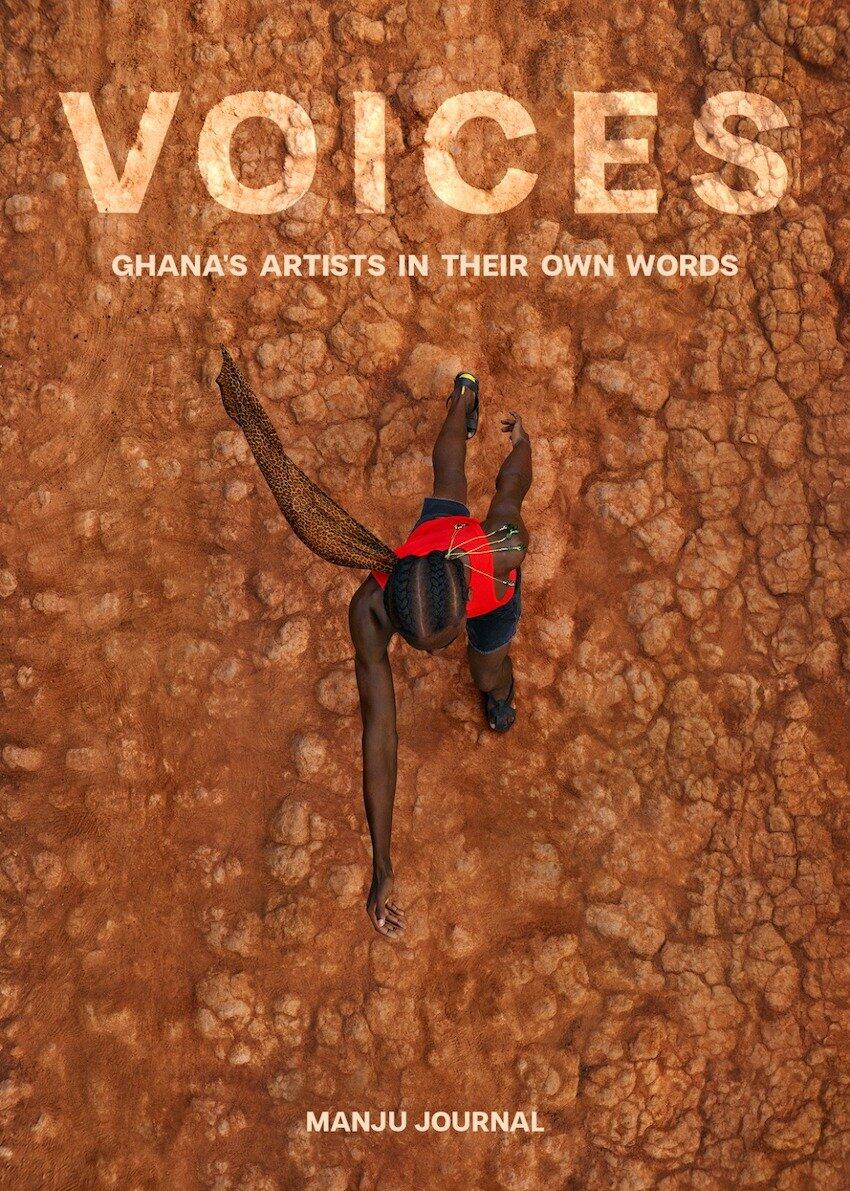Editor’s Picks: Manju Journal Says It’s Time We Move to Ghana
Other highlights include Noname’s latest ‘bedroom rap’ album and the second season of Isaac Asimov’s Foundation
Other highlights include Noname’s latest ‘bedroom rap’ album and the second season of Isaac Asimov’s Foundation

Frieze Editor’s Picks is a fortnightly column in which a frieze editor shares their recommendations for what to watch, read and listen to.
Voices: Ghana’s Artists in Their Own Words, 2023
Manju Journal is a global culture platform built around a digital community of African creatives operating on the continent and in the diaspora. Since it launched in 2015 to celebrate innovation in Ghana, the platform has collaborated with global brands to showcase contemporary African fashion, music and visual arts around the world. Next month, Manju Journal will release Voices, its debut artbook lionising 80 Ghanaian creatives. With a foreword by writer and curator Ekow Eshun, Voices features photography and interviews from artists and curators such as Campbell Addy, James Barnor, Osei Bonsu, Zohra Opoku and Afia Prempeh.

The past 12 months have felt like a procession of events and releases celebrating artists from across the African continent and the diaspora. London alone saw two major exhibitions last year: ‘In the Black Fantastic’ at the Hayward Gallery, which delivered on its promise of a new and faithful take on Afrofuturism, and ‘The New Black Vanguard’ at the Saatchi Gallery which, developed from Antwaun Sargent’s 2019 landmark photobook of the same name, turned rising artists into household names.

This year, two firsts have taken place: Ghanaian-Scottish curator Lesley Lokko dedicated the Venice Architecture Biennale to Africa’s impact on the globe; and in New York, the Museum of Modern Art’s latest iteration of its celebrated photography series is the first to be focussed on one region – ‘New Photography 2023’ showcases works by seven Nigerian image makers inspired by the visual language of Lagos. The highly anticipated release of Voices, alongside the frieze issue 236 dossier titled ‘Ghana: Four Galleries to Watch’, shows it’s high time the art world turned its full attention to Ghana.
Noname, Sundial, 2023
Noname’s self-released mixtape – Telefone (2016) – was the soundtrack to a year that was universally acknowledged as one of the worst on record: a trip around the sun so disliked that Penguin Books even published F**k You, 2016 that same year. From the deaths of music icons Prince and David Bowie through Brexit and post-truth to the presidential elections of Donald Trump and Rodrigo Duterte, a slew of tragedies and political controversies came to define a new reality – one which could only be comprehended if acknowledged as mythical. Noname’s mixtape, with its low-slung bars and melodic vocal flow, became a joyful sedative I administered on repeat.

Five years and one pandemic later, the Chicagoan rapper returns with Sundial (2023). Heartbreak with a side portion of unfaltering disappointment is the plat du jour she serves in swollen mouthfuls across every track. Noname takes aim at everything and everyone, including herself. Beyoncé, Kendrick Lamar and Barack Obama are laid to waste in ‘namesake’, a track that criticises those with a platform who glamorize the ‘war machine’ – as she spits it – that is America. She also pulls the trigger on herself and questions her own failures as an artist and the compromises she has made in the intermediate years since Telefone.
Although Sundial is not perfect, the album – all rapturous neo-soul melodies interspersed with flourishes of gospel – revels in Noname’s self-annihilation. Lines such as ‘New enemy, same identity: me / When I believe I’m prettier with my weave’ in ‘beauty supply’ are a targeted destruction of the ego, which she builds back up in self-love tracks like ‘toxic’. Although I miss the sunny naivety of Noname’s 2016 release, Sundial demonstrates a matured artist who can bare teeth.
Foundation (2021–ongoing)
There are few sci-fi novels that readily capture the imagination like Isaac Asimov’s Foundation trilogy (1951–53), which was adapted into a television series in 2021 by Josh Friedman and David S. Goyer. Last month, the show returned to Apple TV+ for a second season with intergalactic aplomb.

Jared Harris (Chernobyl, 2019; Mad Men, 2009–2012) and Lee Pace (Bodies Bodies Bodies, 2022; Captain Marvel, 2019) lead an ensemble cast through an epic geopolitical saga in which an imposing dynastic force seeks to control all of humanity. The core conceit is nothing knew – imperialistic bad guys versus nerdy good guys – but the apocalyptic storyline, intricate character development and cinematic production has kept me riveted.
Main image: François-Xavier Gbré, Untitled, 2013. Courtesy: the artist and Tate Modern as part of A World in Common: Contemporary African Photography (2023) currently on view at Tate Modern






















